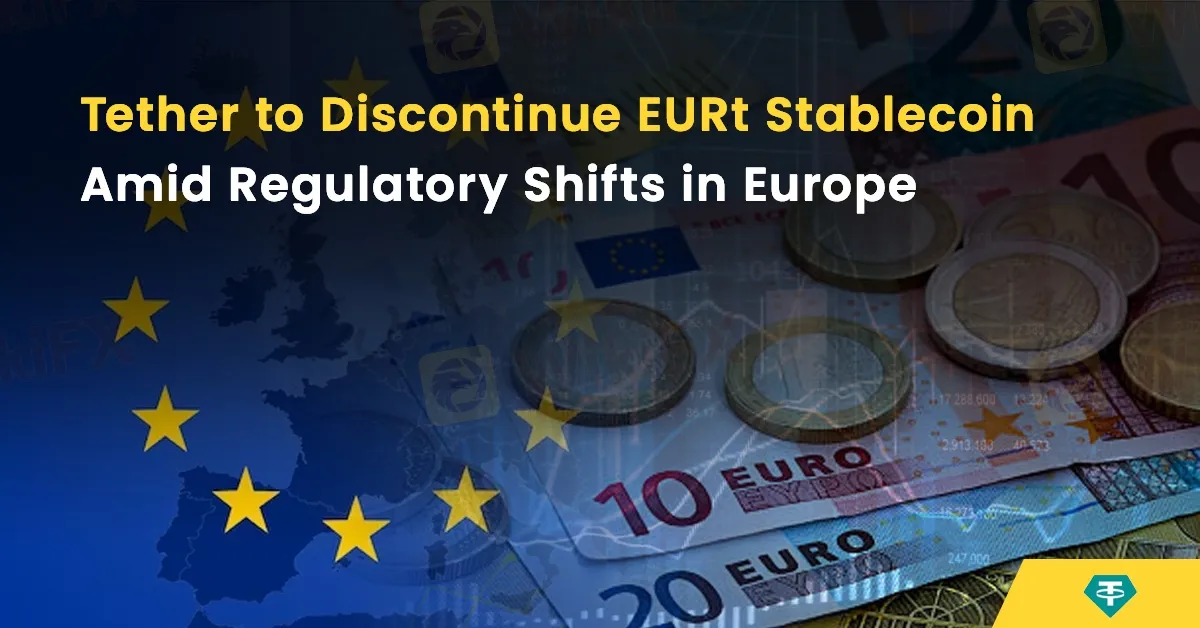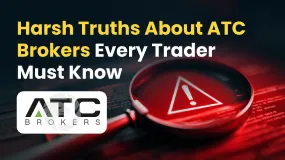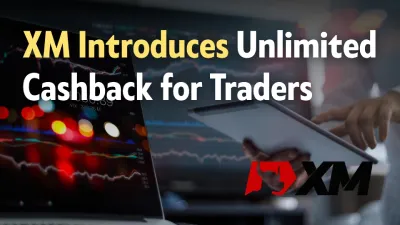简体中文
繁體中文
English
Pусский
日本語
ภาษาไทย
Tiếng Việt
Bahasa Indonesia
Español
हिन्दी
Filippiiniläinen
Français
Deutsch
Português
Türkçe
한국어
العربية
Tether to Discontinue EURt Stablecoin Amid Regulatory Shifts in Europe
Abstract:Tether, the issuer of the world’s largest stablecoin, USDt, has announced that it will cease support for its euro-pegged stablecoin, EURt (EURT), across all blockchains. Users are required to redeem their EURt holdings by 25 November 2025, following the company’s decision to phase out the token.

Tether, the issuer of the world‘s largest stablecoin, USDt, has announced that it will cease support for its euro-pegged stablecoin, EURt (EURT), across all blockchains. Users are required to redeem their EURt holdings by 25 November 2025, following the company’s decision to phase out the token.
The move comes in response to evolving regulatory landscapes in Europe, particularly the forthcoming Markets in Crypto-Assets (MiCA) regulation, which is set to take full effect by the end of 2024. In a statement released on 27 November, Tether highlighted that its decision aligns with a strategic evaluation of the regulatory frameworks affecting stablecoins in the European market. The company underscored its commitment to prioritising community interest when deciding which tokens to support.

Introduced in 2016, EURt was designed to provide a stable euro-backed asset for the cryptocurrency market, maintaining a 1:1 peg with the euro. However, despite its longevity, EURt has struggled to gain significant traction. With a market capitalisation of just $27 million, it accounts for a mere 0.02% of the market cap of its USD-backed counterpart, USDt. Tether revealed that the last request to mint new EURt tokens was processed in 2022, signalling a decline in demand well before the current decision to retire the stablecoin.
Tether‘s exit from the euro stablecoin market reflects growing regulatory scrutiny under MiCA, which introduces stringent requirements for stablecoin issuers, including reserve management and transparency. Tether’s CEO, Paolo Ardoino, has previously criticised the MiCA framework, arguing that it could introduce systemic risks to the banking sector by imposing overly rigid controls on stablecoin operations.
Despite retiring EURt, Tether remains committed to supporting regulatory-compliant innovations. The company has backed several MiCA-compliant projects, including EURq and USDq stablecoins developed by the Dutch fintech firm Quantoz Payments. These stablecoins, created in partnership with Kraken exchange and Fabric Ventures, will use Tethers proprietary Hadron technology to streamline compliance, anti-money laundering processes, and blockchain integration for issuers.
Currently, Circle‘s EURC and Société Générale’s EURCV dominate the euro stablecoin market, holding a combined market share of 67%. Quantozs EURq aims to carve out a niche in this competitive space. As part of its compliance with MiCA regulations, Quantoz will maintain 2% of the EURq token supply on its balance sheet, ensuring transparency and accountability.
Tether‘s strategic pivot extends beyond the euro market. The company recently announced partnerships with UAE-based firms Phoenix Group and Green Acorn Investments to develop a dirham-pegged stablecoin. This initiative highlights Tether’s ongoing efforts to expand its portfolio while navigating complex regulatory environments.

Disclaimer:
The views in this article only represent the author's personal views, and do not constitute investment advice on this platform. This platform does not guarantee the accuracy, completeness and timeliness of the information in the article, and will not be liable for any loss caused by the use of or reliance on the information in the article.
Read more

Harsh Truths About ATC Brokers Every Trader Must Know
Many regulated brokers hide the risks associated with them. They never talk about these risks and try to attract customers with appealing offers. Later on, customers discover these hidden risks and feel disappointed. Before you come across a similar situation, we want to let you know the risks involved with ATC Broker. Check out the article to discover the harsh truth about it.

Major U.S. Banks Plan Stablecoin Launch Amid Crypto Regulations
Major U.S. banks like Bank of America and Citibank explore stablecoins as new crypto-friendly bills set to reshape digital assets' role in finance.

XM Launches Unlimited Cashback Promotion for Traders Worldwide
XM launches unlimited trading cashback from July 15 to August 15. Get unlimited rebates with a Standard or Micro account and enjoy expanded trader club benefits.

10 Signs of a Fake Forex Trading or Crypto Website
Been to a forex trading or crypto website promising guaranteed returns, displaying too good to be true testimonials and far too many impressive features? Beware, it's a SCAM! In this article, we discuss 10 signs of a fake forex trading or cryptocurrency website.
WikiFX Broker
Latest News
Scam Alert: Revealing Top Four Forex Scam Tactics Employed to Dupe Investors
Meta says it won't sign Europe AI agreement, calling it an overreach that will stunt growth
Ether and trading stocks take the crypto spotlight as Congress passes historic stablecoin bill
Inflation outlook tumbles to pre-tariff levels in latest University of Michigan survey
Peter Thiel-backed cryptocurrency exchange Bullish files to go public on NYSE
What a Trump, Powell faceoff means for your money
Ether takes crypto spotlight as Congress passes historic stablecoin bill
Exness Halts New India Accounts Amid Regulatory Change
eToro and BridgeWise Launch AI Smart Portfolio for US Mid-Cap Stocks
Forex.com vs OANDA: A No-Nonsense Comparison That Actually Helps You Decide
Currency Calculator


